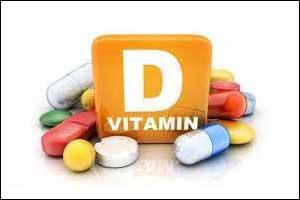- Home
- Editorial
- News
- Practice Guidelines
- Anesthesiology Guidelines
- Cancer Guidelines
- Cardiac Sciences Guidelines
- Critical Care Guidelines
- Dentistry Guidelines
- Dermatology Guidelines
- Diabetes and Endo Guidelines
- Diagnostics Guidelines
- ENT Guidelines
- Featured Practice Guidelines
- Gastroenterology Guidelines
- Geriatrics Guidelines
- Medicine Guidelines
- Nephrology Guidelines
- Neurosciences Guidelines
- Obs and Gynae Guidelines
- Ophthalmology Guidelines
- Orthopaedics Guidelines
- Paediatrics Guidelines
- Psychiatry Guidelines
- Pulmonology Guidelines
- Radiology Guidelines
- Surgery Guidelines
- Urology Guidelines
PCOS: oral vitamin D can reduce the risk of diabetes

Poland: Providing oral supplementation of vitamin D, alone or as a co-supplement to women with polycystic ovary syndrome (PCOS) effectively improves insulin sensitivity which in turn can reduce the risk of diabetes, suggests a new study. The systematic review appears in the journal Nutrients.
Insulin sensitivity is improved in terms of decreasing fasting glucose concentration and Insulin Resistance Index by Homeostatic Model Assessment (HOMA-IR) value. Additionally, HOMA-IR value also decreased with daily dose and low doses (<4000 IU, daily) of vitamin D alone, but not with weekly dose.
Karolina Łagowska, Institute of Human Nutrition and Dietetics, Poznań University of Life Sciences, Poland, and colleagues conducted systematic review and meta-analysis of data available in randomized controlled trials to assess the effect of vitamin D supplementation (alone or in co-supplementation) on insulin resistance in women with PCOS.
- There was no significant overall effect of vitamin D supplementation on fasting glucose concentrations (SMD: 1.54, 95% CI: -5.17, 0.85, P= .16) or when different doses of vitamin D or when supplementation manner was considered.
- There was significant decrease in fasting glucose concentration with type of supplementation (vitamin D alone: SMD: 2.18; 95% CI: −5.70, 0.28; P =.51; co-supplement: SMD: 1.54; 95% CI:−6.77, −0.74; P = .0146).
- There was a significant decline in HOMA-IR value when vitamin D was supplemented with a dose <4000 IU/day compared with high dose (high dose, SMD, 0.18; P=.9914, vs low dose, SMD,−0.31; P=.0016; overall effects, Z=1.1770; P=.2392).

Disclaimer: This site is primarily intended for healthcare professionals. Any content/information on this website does not replace the advice of medical and/or health professionals and should not be construed as medical/diagnostic advice/endorsement or prescription. Use of this site is subject to our terms of use, privacy policy, advertisement policy. © 2020 Minerva Medical Treatment Pvt Ltd